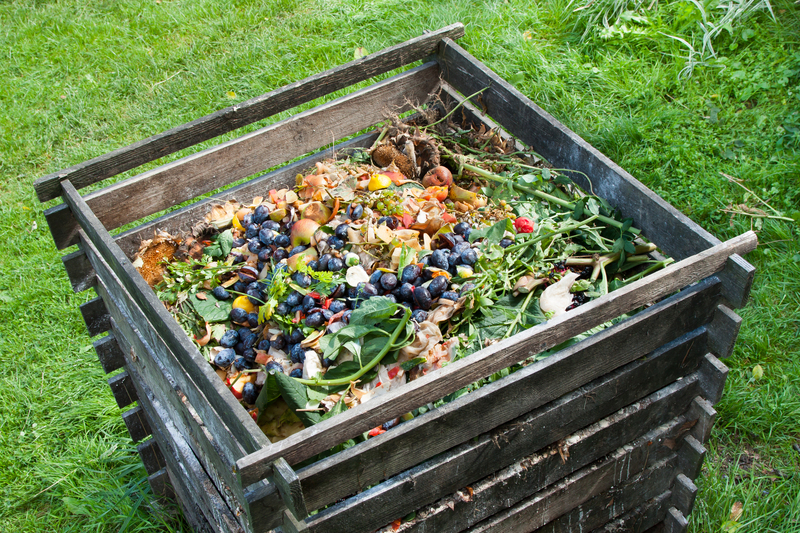The Next Era of Waste Management
Posted on 01/11/2024
Waste management has evolved significantly over the past few decades. From traditional landfill disposal to advanced recycling and composting techniques, the sector continues to innovate and adapt. The next era of waste management promises even more significant advancements, driven by technology, policy changes, and an increased societal focus on sustainability.
Technological Innovations
The integration of technology in waste management is revolutionizing the industry. Smart bins, automated sorting systems, and waste-to-energy technologies are just a few examples of how digital transformation is making waste management more efficient and sustainable.
One of the most exciting technological advances is the development of smart waste management systems. These systems use sensors and IoT (Internet of Things) devices to monitor waste levels in real-time, optimizing collection routes and reducing operational costs. Additionally, automated sorting systems equipped with AI and machine learning capabilities can effectively separate recyclables from non-recyclables, improving recycling rates and reducing contamination.

Policy and Regulatory Changes
Governments worldwide are implementing stricter regulations to manage waste, aiming to reduce landfill use and promote recycling and composting. Policies such as the European Union's Circular Economy Action Plan and the United States' Zero Waste initiatives are paving the way for more sustainable waste management practices.
Extended Producer Responsibility (EPR) is another key regulatory change shaping the future of waste management. EPR holds manufacturers accountable for the entire lifecycle of their products, including disposal. This encourages companies to design products that are more easily recyclable and to invest in recycling programs.
Community Engagement and Education
As waste management practices evolve, so too must public awareness and participation. Educating communities about the importance of recycling, composting, and proper waste disposal is crucial. Community-based programs and initiatives can significantly impact waste reduction at the local level.
Many cities have launched public awareness campaigns to teach residents how to reduce, reuse, and recycle effectively. Schools are also incorporating waste management education into their curriculums, ensuring that future generations are informed and proactive about sustainability.
Corporate Responsibility and Innovation
Corporations are increasingly recognizing their role in sustainable waste management. Many companies are investing in innovative waste reduction strategies, such as using biodegradable materials and implementing zero-waste programs.
For example, several major retailers have started using biodegradable packaging instead of traditional plastic. These efforts not only reduce waste but also cater to an environmentally-conscious consumer base.
The Pros and Cons of Modern Waste Management
Pros
- Environmental Benefits: Advanced waste management techniques reduce landfill usage, decrease greenhouse gas emissions, and promote recycling and composting.
- Economic Efficiency: Technological innovations like smart bins and automated sorting reduce operational costs and improve efficiency.
- Regulatory Compliance: Meeting stricter waste management regulations can prevent legal issues and penalties.
Cons
- High Initial Costs: Implementing new technologies and systems can be expensive and may require significant upfront investment.
- Complexity of Integration: Integrating new technologies with existing waste management infrastructure can be challenging.
- Public Resistance: Changing public behavior and attitudes towards waste management can be difficult and time-consuming.
Tips for Effective Waste Management
- Educate and Engage: Informing the public about the importance of sustainable waste practices is crucial. Utilize workshops, social media, and community programs to spread awareness.
- Invest in Technology: Consider investing in smart waste management systems and automated sorting technologies to improve efficiency.
- Corporate Responsibility: Encourage businesses to adopt sustainable waste management practices and hold them accountable through policies like EPR.
- Government Support: Advocate for supportive policies and regulations that promote recycling, composting, and waste reduction.

Key Takeaways
- The next era of waste management will be driven by technological advancements, policy changes, and increased public awareness.
- Technological innovations like smart bins and automated sorting systems improve efficiency and sustainability.
- Policies such as EPR are crucial for promoting corporate responsibility and sustainable practices.
- Public education and community engagement are essential for the success of modern waste management initiatives.
Conclusion
The future of waste management is bright, with numerous advancements poised to transform the industry. By integrating technology, implementing supportive policies, and fostering community and corporate engagement, we can create a more sustainable and efficient waste management system. While challenges remain, the collective efforts of governments, businesses, and individuals will drive the next era of waste management towards a more sustainable future.
Latest Posts
Planet-Friendly Disposal Strategies
House Waste Removal Made Easy: Top 5 Tools
Hard Rubbish: Identification & Disposal Tips





